Actoplus Met is a combination medication used in the management of type 2 diabetes mellitus. It combines two active ingredients, pioglitazone and metformin, which work together to regulate blood sugar levels. Pioglitazone belongs to the thiazolidinedione class of drugs and improves insulin sensitivity, while metformin acts as an antihyperglycemic agent by reducing glucose production in the liver and increasing insulin sensitivity in peripheral tissues.
Actoplus Met is available in tablet form and is typically prescribed in conjunction with a healthy diet and regular exercise to control blood sugar levels in adults with type 2 diabetes. It is not recommended for use in the treatment of type 1 diabetes or for diabetic ketoacidosis.
Safety Measures
Actoplus Met should not be used in individuals with known hypersensitivity to any of its components. It is contraindicated in patients with severe kidney impairment, liver disease, heart failure, metabolic acidosis, or a history of lactic acidosis.
Before starting Actoplus Met, healthcare providers should assess a patient’s medical history, including any underlying conditions or medications that may interact with the drug. It is important to inform the healthcare provider about any allergies, kidney or liver problems, heart issues, or alcohol abuse. Actoplus Met should be used with caution in patients with a risk of bone fracture or in individuals above the age of 80.
Adverse Reactions
The use of Actoplus Met may lead to certain side effects, which can vary in severity and frequency. Common side effects include diarrhea, nausea, vomiting, stomach discomfort, headache, and upper respiratory tract infection. Weight gain and edema (fluid retention) may also occur.
Less frequent but more serious adverse reactions that may occur include hypoglycemia, lactic acidosis, and liver problems. Symptoms of hypoglycemia include sweating, dizziness, shakiness, and hunger, while lactic acidosis may present as weakness, tiredness, difficulty breathing, nausea, vomiting, stomach pain, or slow heart rate. In case of any concerning side effects, medical attention should be sought immediately.
Dosage Guide
The dosage of Actoplus Met should be individualized based on a patient’s glycemic response and tolerability. Typically, the recommended starting dose is one tablet of Actoplus Met 15 mg/500 mg or Actoplus Met 15 mg/850 mg twice daily with meals. The maximum recommended daily dose is 45 mg of pioglitazone and 2,550 mg of metformin.
If a dose is missed, it should be taken as soon as remembered. However, if it is close to the next scheduled dose, the missed dose should be skipped. Double doses should not be taken to make up for a missed dose.
In case of overdose, symptoms such as hypoglycemia, lactic acidosis, and severe fluid retention may occur. Immediate medical attention should be sought if an overdose is suspected. Treatment may involve supportive measures and symptomatic treatment.
Understanding Drug Interactions
Actoplus Met may interact with other medications, altering their effects or increasing the risk of side effects. It is important to inform the healthcare provider about all medications, including prescription, over-the-counter, and herbal products, being taken.
Some drugs that may interact with Actoplus Met include oral contraceptives, antidiabetic medications, diuretics, beta-blockers, corticosteroids, and certain antifungal or antiviral medications. Concomitant use of Actoplus Met with insulin or insulin secretagogues may increase the risk of hypoglycemia and should be monitored closely.
Your Questions Answered
-
Q: Can Actoplus Met be used as monotherapy for type 2 diabetes?
A: Actoplus Met is typically prescribed as an adjunct to diet and exercise for type 2 diabetes management and is not recommended as monotherapy.
-
Q: What should I do if I experience symptoms of hypoglycemia?
A: If experiencing symptoms of hypoglycemia, it is advisable to consume a source of fast-acting glucose, such as fruit juice or candy, and promptly seek medical attention if symptoms do not improve.
-
Q: Can Actoplus Met be used during pregnancy or breastfeeding?
A: Actoplus Met is not recommended during pregnancy or breastfeeding. Consult a healthcare provider for suitable alternatives.
-
Q: Are there any dietary restrictions while taking Actoplus Met?
A: No specific dietary restrictions are necessary while taking Actoplus Met. However, it is important to follow a healthy diet as directed by a healthcare provider.
-
Q: Does Actoplus Met interact with alcohol?
A: Actoplus Met may increase the risk of lactic acidosis when combined with excessive alcohol intake. It is advisable to limit alcohol consumption or avoid it altogether while taking this medication.
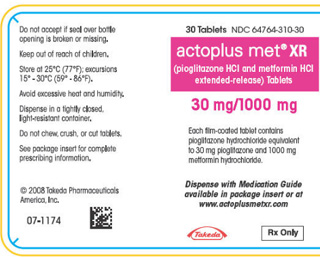
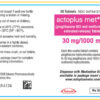
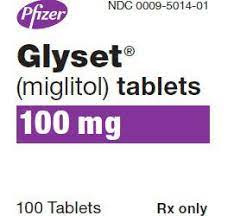
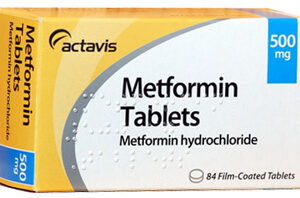
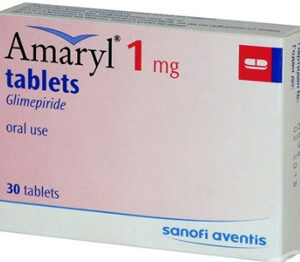
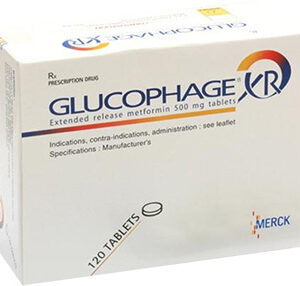
Reviews
There are no reviews yet.